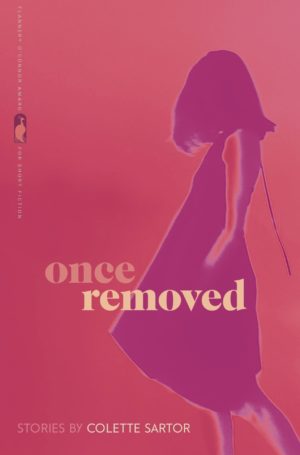The Word for Cigarette
There is a strangeness in isolation. In the wanting to be part of a whole. In the exile of being an outsider in a new place, where people’s eyes gloss and glaze over you like there is a ghost among them, like you are a pane of glass that they can look through.
Sometimes she feels like a woman without a country. A lone wolf, sunkmanitu tanka.
Learning the names of animals came most naturally to her; that, and colors. Tho was blue and Zi was yellow and Thozi was green, which delighted her and put in her mind the image of paints on a palette being blended together, shiny and smooth.
She fidgets with her keys, the Chinook winds spinning dirt in circles at her feet, her hair blowing into her mouth, her eyes. The parking lot is empty except for her station wagon and the rusty black Dodge idling beside it. She does not look over and smile at its occupants, as she would have reflexively done in the past, in her former life. She is reprogramming herself. She is perfecting the lost art of not-making eye contact.
A voice breaks through the wind and she flinches.
“You got a chun, or what?” The kid leans out the window. He looks about twelve.
“What?” She asks, trying to put the letters into a word she recognizes.
“A chunli, you got a chunli?” There is boredom in his voice, a little hostility.
It is just about dusk. She is getting into her car and there are crickets and bullfrogs and all of it—the last legs of fall, dusty and calm, self-contained.
She smiles because she understands. “No, sorry, I don’t.”
She wishes she did. She wants to say, I know what that means, I understand you.
The boy looks away and then his big brother or whoever gets into the car and they drive off into the flicker and haze of twilight. It’s funny because in her old life, the thought of giving a cigarette to a twelve year old would have made her sad, uncomfortable. But for some reason things seem different here. Kids grow up quick.
She goes to Pinky’s and buys a pack, Marlboro Reds, like her dad used to smoke, before he quit and before he left her mother. She hates cigarettes but loves her father, even though she tries not to.
This way she would have something to offer, next time.
She knows that when people make prayer ties they fill them with tobacco, before hanging them from the trees. She has seem dozens of them, all colors, not just the red-yellow-white-black of the Lakota, but others too. Purple and green, tiny circles, delicately tied, suspended in the clumsy August breeze at Bear Butte, where she had gone when she first got here. She had seen a pile of coke bottles, all unopened, stacked up in an offering beside a painting of lightning and a buffalo. At the time she didn’t understand, and she joked about it.
That was the worst part. The not-knowing. The making jokes. Actually, the worst part was much, much worse and had nothing to do with her.
She wanted to have something to offer.
It’s dark now. On the way out of town she is glad to drive behind a pickup, following the bouncing lights down the road that is coming apart, where the grass grows through in patches. Bugs hit the windshield, making soft clicks. If a deer or a fox or a horse is in the road, it will be the pickup who will make first contact. She follows behind her protector and is grateful.
Driving through the badlands always gives her a tingly, magical feeling, but driving though them at night makes her feel like the spirits are watching. She isn’t sure about spirits, about what she believes, but she has a respect for the badlands at night that makes her nervous and silent—in awe and afraid.
She has heard stories of deer people. The little people, and the tall man. How owls mean death. And even though she has always loved them, when what looked to her like a white owl swooped right above her windshield one night as she was coming around one of those ragged turns in the road, her heart beat fast in her throat, and she drove oh so slowly and carefully, her hands locked on the wheel in a death grip, sure that the bird was a warning.
She follows the pickup around a soft curve in the road. In her peripheral vision she catches sight of a dead animal, crumpled in the other lane. It is something very big. Her brain takes a snapshot of the lights reflected off the body, her mind tiptoeing on what is seen in an instant.
Was that a person, she asks herself. And in her mind it was. It was a person curled up, laying in the road. She argues with herself; it couldn’t have been a person. She is just imagining things. If it had been a person, the pickup would have stopped.
She cannot get the freeze-frame out of her mind so she makes a U-turn and heads back in the other direction, knowing that it isn’t a person. Knowing she is being irrational. Knowing she just has to check and make sure.
But it is a person. It’s a man, his body the shape of a crescent moon.
She pulls alongside him and her breath catches in her throat because he’s dead. He has to be dead. He has been hit by a car and he’s dead and now she has to call 9-1-1, but do they even have 9-1-1 here, she isn’t sure.
She stops her car a few feet in front of the body, in the middle of the road, and puts her hazards on. She gets out and looks, oh so cautiously.
He is curled up in the fetal position. It is too dark to see if there is blood.
“Hey,” she calls, not really shouting because it is eerily quiet and her voice carries out far into the night, “Hey man, are you okay?”
He does not respond. Her hands are shaking. She grips her phone.
She asks him again, then once more, louder each time.
The sound of the crickets is terrible.
“Yeah,” a voice leaks out of the man, gravelly and rusted, and she feels her whole body relax as relief falls through her, shaking her loose of the nightmare she has found herself in.
“You have to get out of the road.”
He looks up at her and makes a sound, a cross between a cough and moan. He pushes himself up, slowly, first to his knees, and then he is standing, swaying gently in the cool, dark night.
She sees that he does not have shoes, or a shirt.
“I’m sorry,” he says, moving towards her, only an inch or so. She thinks of the knife in her backpack, the one made of some kind of special Japanese steel. “I’m sorry I’m so drunk.”
“It’s okay.” She isn’t sure what to say. “But you can’t lay down in the road.”
“I was trying to walk to Rapid. I walked all the way here. I wanted to go see my family.”
She realizes he is crying.
“I’m sorry,” he says, again and again.
“Do you live in town?” she asks. She lives in Rapid City, and is headed home, an hour’s drive north, give or take, mostly give. She cannot take him. This is something she knows. A woman does not let a strange, shirtless, crying man into her car.
“Yeah, back in Manderson.”
They are five miles out of town, where she has just come from—working to gain support for her anti-uranium mining coalition. The waters here are radioactive.
“I walked all the way here.” He is still crying. “We got in a fight and he threw me down on the ground, and he fucked up my face. See, it’s all cut up.”
It is too dark to see. Headlights are getting brighter in the distance, heading towards Manderson. Her thoughts slosh around in her head like water.
“I’m going to see if this car will give you a ride.”
She doesn’t know a lot about the people living on the reservation, but she knows that the towns are small. It seems like most people know each other, or if they don’t, they at least know each other’s relatives. Mitakuye Oyasin.
She stands near the center line, holding up her hand to the grey pickup that is getting closer. Grey, hota. Everyone in South Dakota seems to have a pickup.
The truck does not stop.
She doesn’t know what to do.
She turns back to the man and sees him stagger. He wipes his eyes with the back of his hand. She can see that he is young, younger than her.
In that moment she makes a decision.
“I can give you a ride back into town.” She pauses. “But you have to sit in back, I have a whole bunch of shit piled up front.” She feels like that would be safer somehow. Like him being in back will put a distance between them that will make this okay.
He leans against the side of the car, sniffling, thanking her. She opens the door for him because it is broken and only opens from the inside. She puts the key in the ignition and changes her mind.
Him sitting directly behind her does not feel safer at all. It feels oh so unsafe.
“I’m sorry, I’m being rude,” she says. “Do you want me to move my stuff so you can come sit up front?”
“Yeah, really?” There is a subtle brightness in his voice. “You don’t mind? That would be great.” He is already making his way around the car.
She throws her briefcase, her stacks of books and pamphlets, her bag of tomatoes and zucchini she bought from the woman in the Pinky’s parking lot, throws it all into the backseat. He gets in. The smell of alcohol squeezes in around them. She thinks of the knife in her backpack.
“Here.” She holds out a mostly full energy drink. “Do you want this?”
He takes it. He isn’t crying anymore. The car ride is soothing him, she thinks.
“So what happened?” she asks. “You got in a fight?”
“Yeah, with my husband. Things got pretty bad.”
She is taken aback, having met hardly any other queer people on the reservation, any other allies. It’s something she keeps to herself here, her sexuality. She is fearful of the scorn she’s heard about, the hatred bred out of so many years of indoctrination. Our father who art in Heaven. Her own father would have been sickened. He would have spat, dust rising up from the ground, called him a fairy, or worse. She decides that she has definitely made the right decision, letting this man in her car.
In the old language there was a word that did them both justice, a beautiful poetry-word that resonated with her in a raw and visceral way. In the old language she was a two-spirit.
“How old are you?” she asks.
“Twenty five.” He takes a long drink. “Hey, do you have any smokes?”
“Yeah.” She smiles, handing him a cigarette.
“Can you turn on the radio?” He grins.
“Sure.” She had been listening to NPR, and classical music creeps out into the night and she feels embarrassed. Laughing, she says, “Is this what you had in mind?”
“No! Put on something good—94.7, Chadron’s greatest hits,” he says in singsong. Then it is Taylor Swift or one of the other pop musicians. They all blend together in her mind, and it makes her feel old and airtight, zipped up in the fast-approaching middle age, where she cannot connect with the youth anymore. Where she thinks of them as “the youth.”
“Turn it up,” he says, like they are old friends, like this is just a fun, nighttime ridearound, like they are teenagers trying to kill time in a small town on a lonely night in the middle of nowhere.
He smokes his cigarette and asks for another. He puts his arm out the window and everything seems simple and easy all of a sudden. Like you can lie down in the road or you can laugh and roll the windows down, and it is the same thing either way and neither one is bad or good.
They are back in town and he directs her toward to his house. When they get close he asks if they can drive around the block first, before he goes in. The streets are deserted and the rainbow lights of televisions shine through windows. Rainbow, wigmunke. She thinks of her own neighborhood. Thinks of her mother, walking the figure eight around their house, again and again, losing her mind because she doesn’t know how to be alone. Smoking cigarettes, even though she’d never smoked—trying to hold the man who left her inside her body.
It had broken her as a child, watching her mother fall apart. Not being enough.
“This is my song!” he says, reaching for the dial. The station is coming in fuzzy, but he turns it up anyway, static crackling in the heart of the badlands, in the home of Crazy Horse.
“Is it safe for you there?” she asks, wondering if maybe beneath that happy-drunk exterior he is afraid, he is stalling.
“Yeah, I’ll be fine. I asked for it, you know. I took off my ring and threw it at him.” He shakes his head. “But we’ll make it right. We always make it right.”
She pulls into his driveway, dipping down deep into potholes.
She turns down the music and he thanks her, his hand on the door handle.
“Just promise me you won’t lay down in the road anymore.”
He looks at her for a long moment.
“I know how not to lay in the road,” he says slowly, quietly.
She doesn’t know what to say, so she says nothing. He was doing it on purpose then, she realizes, a sadness falling over her. He was trying to die.
“Hey, do you have another cigarette?” he asks.
She holds out the pack. “Take it,” she says. “Chunli, right?”
He uses both hands to cover hers, the cigarettes like a nesting doll inside them. He is incredibly still, and even though it is dark she can see herself reflected in his eyes and she can see all the pain there and all the joy and loss and uncertainty. She sees herself in his eyes and it makes her shiver and long for her mother, and maybe even her father. Someone that knows her, if only a little.
There is the sound of the door opening, then slamming shut. She can see a figure, silhouetted inside the house, moving around and through it, like this is just another night.
She backs out of the driveway and starts to cry.
**
Jess Charest is a writer and teacher living in Rapid City, SD. Born and raised in the Catskill Mountains of Upstate New York, she received her MFA from Chatham University in Pittsburgh, PA. She has also lived in Tucson and Chicago, where she worked with people with disabilities and kids with autism. She is a fiction writer who also writes children’s books and likes to draw. Her work has appeared in Curbside Splendor, Midwestern Gothic and the anthology Flash Fiction Funny, among others. She is the art editor for Lime Hawk Literary Arts Collective and currently teaches at Oglala Lakota College on the Pine Ridge Reservation.
**
Image: flick / Ximena Salazar







